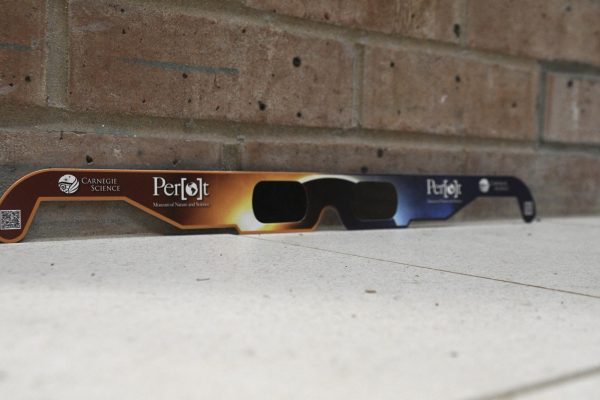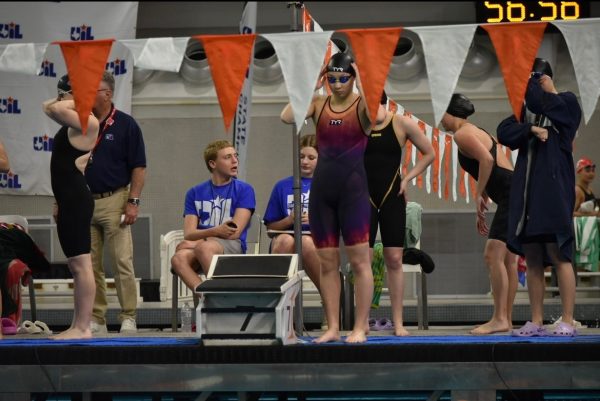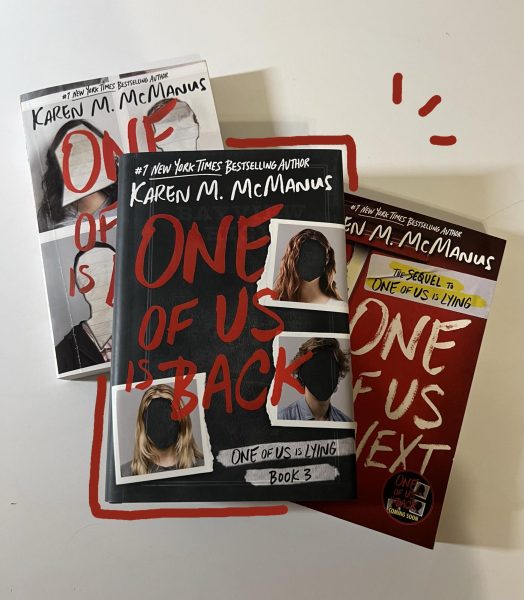The Reel Side of Filmmaking
A look into Allen students’ achievements and experiences with filmmaking.
Films. Fictional, documentative, horrifying or even animated, people are drawn by the masses to see films. In 2012 the American film industry grossed $10.8 billion, and according to forbes.com 2013 bested that by 7 percent. Following their admittance into the Dallas International Film Festival (DIFF), several students are potentially on their way to becoming a part of the booming industry that is film.
Two student directed films were accepted into the festival under the Shorts Competition category: “Look at Me,” directed by juniors Ryan Fairbanks, Jordan Pryor, Jacob Fitts and Ian Diez, and “Mirror,” directed by seniors Leah McGraw and Jessica Tran. The DIFF features select films from various categories, the majority of which are made by local filmmakers. Last October DIFF opened its virtual window for film submissions. Upon acceptance, a submitted film would be screened during the festival sometime between April 3 and April 13. An accepted film would also qualify to win 10 grand prizes presented by the festival.
Junior Ryan Fairbanks and his co-directors entered their films into DIFF as a part of their A/V Production class project. Fairbanks said he has been making films since the fifth grade.
“I started off by doing stop-motion with my Legos, I created scenes from the movie [War of the Worlds]. I also met Jacob Fitts freshman year, that’s when we started making serious films,” Fairbanks said.
Fairbanks said he and his co-directors decided to make the film about two months prior to the competition’s deadline, although they shot the entire film in one night.
“It was mainly Ian and Jordan’s idea because they wanted to make a horror film. We just kind of improvd the whole thing. We just met up at Chick-Fil-A one day [and] decided, ‘Hey, lets make a film,’” Fairbanks said. “It really surprised us how far the film went because we made this film without a care in the world, and it definitely went further than we expected.”
Fairbanks said it was a pleasant surprise when he found out the film was admitted into DIFF. Fairbanks said they originally shot 45 minutes of film, which he had to edit down to eight minutes for the Shorts Competition a week before DIFF’s deadline in November 2013.
“I edited the 45 minute version of the film because there was a lot of footage, and then a couple of weeks later…before the film festival, I narrowed it down to about eight minutes, which was a real challenge,” Fairbanks said.
For McGraw and Tran, their film “Mirror” was the first film they have ever made. Much like Fairbanks and his co-directors, McGraw and Tran submitted their film as a part of an A/V Production project.
“[Mr. Parrish] just said, ‘Do a short film, and we will pick the best three out of all the classes,’” Tran said. “There were so many good films. We were surprised that ours made it in. It’s a good experience.”
“Mirror” is a psychological thriller about a girl who sees a phantom everywhere she goes. McGraw said she did not even know their film was going to be submitted into the festival.
“We were actually really surprised,” McGraw said. “We didn’t expect to make it at all. We didn’t even know our film was going to be submitted.”
McGraw said it was difficult to find time to make the film due to her and Tran’s busy schedules, but they worked efficiently when they were together. Tran said she thought it was good for being their first film, but she did not think it would make it into the contest.
“I learned that you don’t really know what you can do until you actually try,” Tran said. “I came into this class because it seemed fun. We made this film, and it turned out really well.”
Tran, McGraw and Fairbanks said they were surprised to have made the contest. But for senior Zac Butler, a student filmmaker since his freshman year in 2010, considering his news on the festival, he said he was shocked absolutely.
Butler has been featured in several film contests and festivals, including Student Television Network contest in 2011, DIFF in 2011, Journalism Education Association (JEA) Spring 2013 and JEA Fall 2013, where he received the national rank of superior. He said he felt that his chances of making it into DIFF this year were relatively high because he had made it in before.
“As far as I knew, I met all the requirements for the high school showcase,” Butler said. “Since I had been there before, we got to see what other films made it to the screening, so I was able to see what the judges were looking for.”
Upon receiving the news that his film would not be screened at DIFF, he said it was very shocking because he was so confident that it was going to be accepted. He said he was not sure at first what it was that swayed the judges not to put his film through, but after talking to his friends, he came to a conclusion.
“Out of everyone I talked to, we think it was the violence [that caused the film not to be chosen],” Butler said. “The film isn’t brutally violent, but there is a gun throughout the entire film and intentions of suicide. There are intentions of killing, though it was never shown. It’s a really dark film, one of the darkest films I have ever made.”
The shock to Butler was immense because he said he thought it was one of the most professional works he has ever done. He said he put a lot of work into it, even though it took him only four days to shoot the film.
“I went to school and then went straight home to start working and then edited through the night and then [shot] the next day and [edited] through the night,” Butler said. “I wanted this to be the best film I had ever made and for it to go into the film festival.”
Butler said that it was not his intention to make the film so dark and scary but that the judges interpreted it differently. What he learned from this, he said, was that it helped him see what his limits are and that he will be more prepared for the next time he makes a student film.
“Not getting into DIFF did upset me a little bit, but it helps me learn. It helps me learn from my mistakes,” Butler said. “Actually, I wouldn’t even call that film a mistake. I am proud of that film and happy for the way it turned out. I learned that not every film I make is going to be successful, and now I know that by experience.”








